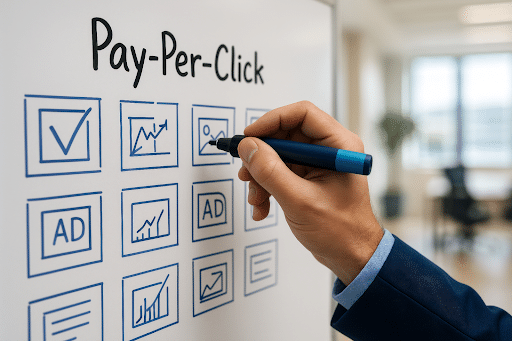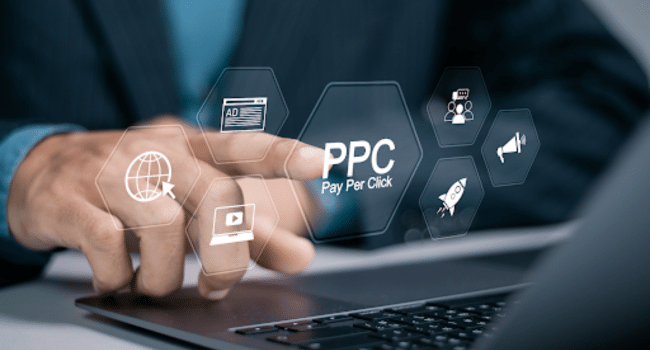Table of Contents
Pay-per-click or PPC advertising has become the backbone of countless successful businesses. From startups seeking rapid growth to established enterprises looking to maintain their competitive edge, PPC campaigns offer unparalleled opportunities to reach targeted audiences with precision and measurable results. However, the complexity of modern PPC platforms, combined with ever-evolving algorithms and fierce competition, has transformed what was once a straightforward advertising model into a sophisticated discipline requiring specialized expertise.
Many business owners initially embrace the do-it-yourself approach to PPC management, drawn by the apparent simplicity of creating ads and setting budgets. While this hands-on strategy might yield modest results in the beginning, there comes a pivotal moment when self-managed campaigns reach their limitations. Recognizing these critical junctures can mean the difference between stagnating marketing performance and unlocking exponential growth through professional expertise.
1. Your Campaign Performance Has Plateaued Despite Increased Investment
One of the most telling indicators that professional intervention is needed occurs when your advertising spend continues to climb while your results remain frustratingly static. This plateau effect typically manifests as diminishing returns on ad spend, where doubling your budget fails to generate proportional increases in leads, sales, or conversions. The underlying issue often stems from fundamental structural problems within your campaigns rather than insufficient funding.
Professional PPC services possess the analytical skills to identify these performance bottlenecks through comprehensive account audits. They examine keyword selection strategies, ad copy effectiveness, landing page alignment, and bidding optimization to uncover hidden inefficiencies. Where amateur campaign managers might simply increase budgets hoping to overcome poor performance, experts restructure campaigns from the ground up, implementing advanced strategies like audience segmentation, negative keyword refinement, and sophisticated bid management techniques that maximize every dollar spent.
2. Managing Multiple Platforms Has Become Overwhelming
The modern PPC landscape extends far beyond Google Ads, encompassing Facebook Ads, LinkedIn advertising, Amazon PPC, Microsoft Advertising, and numerous emerging platforms. Each platform operates with unique algorithms, audience behaviors, and optimization requirements that demand specialized knowledge and constant attention. When businesses attempt to maintain effective campaigns across multiple channels simultaneously, the complexity often becomes unmanageable for internal teams.
Professional PPC agencies bring platform-specific expertise that allows them to tailor strategies according to each channel’s unique characteristics. They understand how to leverage Facebook’s detailed demographic targeting for brand awareness campaigns while simultaneously optimizing Google Ads for high-intent purchase keywords. This multi-platform proficiency ensures consistent messaging and optimal budget allocation across your entire digital advertising ecosystem, something that proves nearly impossible for businesses managing campaigns internally while juggling other operational responsibilities.
3. You’re Spending Significant Time on Campaign Management Without Expertise
Time represents one of the most valuable resources in any business, and PPC management demands substantial time investment to achieve meaningful results. Beyond the initial setup phase, successful campaigns require daily monitoring, continuous optimization, performance analysis, and strategic adjustments based on market conditions and competitor activities. Many business owners find themselves dedicating hours each week to campaign management tasks that could be better spent on core business activities.
The opportunity cost of amateur PPC management extends beyond time allocation to include the learning curve associated with mastering complex advertising platforms. While business owners invest countless hours attempting to understand advanced features like automated bidding strategies, audience targeting options, and conversion tracking implementation, professional PPC managers leverage years of experience and specialized training to implement these strategies efficiently and effectively. This expertise gap often means that businesses spend more time achieving inferior results compared to what professionals could accomplish in a fraction of the time.
4. Your Competitors Are Consistently Outperforming Your Ads
Competitive intelligence plays a crucial role in PPC success, yet most businesses lack the tools and expertise necessary to conduct thorough competitor analysis. When you notice competitors consistently appearing in premium ad positions, generating higher engagement rates, or capturing market share through more compelling ad messaging, it signals that your current approach may be insufficient to compete effectively in your market.
Professional PPC services provide access to advanced competitive analysis tools and methodologies that reveal competitor strategies, budget allocation patterns, and performance trends. This intelligence enables the development of counter-strategies designed to capitalize on competitor weaknesses while strengthening your own market position. Experienced PPC managers understand how to balance competitive bidding strategies with cost-effectiveness, ensuring you remain visible without engaging in destructive bidding wars that erode profitability.
5. Conversion Tracking and Analytics Have Become Too Complex

Modern PPC success depends heavily on sophisticated tracking and measurement systems that go far beyond basic click-through rates and impressions. Proper conversion tracking requires integration with analytics platforms, customer relationship management (CRM) systems, and e-commerce platforms to create comprehensive attribution models that accurately measure campaign effectiveness across the entire customer journey.
The technical complexity of implementing advanced tracking solutions, including Google Analytics 4 integration, cross-device tracking, and offline conversion measurement, often exceeds the capabilities of businesses managing campaigns internally. Professional PPC services bring technical expertise in tracking implementation and data analysis, ensuring accurate measurement of campaign performance and return on investment (ROI). This enhanced visibility enables data-driven optimization decisions that dramatically improve campaign effectiveness over time.
6. Budget Management and ROI Optimization Require Advanced Strategies
Effective budget management in PPC extends far beyond setting daily spending limits and monitoring costs. Advanced budget optimization involves sophisticated strategies like portfolio bidding, seasonal budget allocation, dayparting optimization, and dynamic budget reallocation based on performance data. These techniques require deep understanding of platform algorithms and extensive experience with budget optimization across diverse industries and market conditions.
Professional PPC managers employ advanced budget management strategies that maximize return on investment while minimizing wasted spend. They understand how to identify optimal budget allocation across campaigns, ad groups, and keywords based on performance data and business objectives, whether managing search marketing campaigns, shopping ads, or sophisticated remarketing campaigns. This expertise becomes particularly valuable during high-competition periods or seasonal fluctuations when effective budget management can mean the difference between profitable campaigns and significant losses.
7. Your Business Growth Goals Demand Scalable PPC Strategies
As businesses evolve and growth objectives become more ambitious, PPC strategies must scale accordingly to support expanded market reach, new product launches, or geographic expansion. Scaling PPC campaigns effectively requires advanced planning, sophisticated account structures, and strategic foresight that anticipates future needs while building upon current successes.
Professional PPC services excel at developing scalable campaign architectures that can accommodate business growth without requiring complete restructuring. They understand how to create flexible campaign structures with optimized landing pages that support expansion into new markets, product categories, or customer segments while maintaining efficiency and performance standards. This scalability planning ensures that your PPC infrastructure can support ambitious growth objectives without becoming a limiting factor in business expansion.
Conclusion
Professional PPC management transforms advertising from a necessary expense into a strategic growth driver, providing the expertise, tools, and dedicated attention necessary to maximize your digital marketing investment. By recognizing these critical indicators and making the strategic decision to engage professional services, businesses position themselves to capitalize on the full potential of pay-per-click advertising while focusing internal resources on core competencies that drive sustainable growth and competitive advantage.
